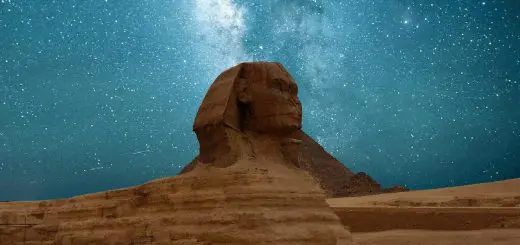The Dwarves of Germanic Mythology: Craftsmen & Guardians

Looking for more amazing products? Check out our online store and explore our collection here! Happy shopping!
Before diving in, please note: This post is for informational purposes only. If you’d like to know more about how we approach topics, feel free to check out our friendly Disclaimer Page.
Hey there, amazing readers! 
We’re committed to delivering quality posts, and your support (even just sticking around despite the ads) means everything to us. So, bear with us, and thanks for helping us keep the good vibes rolling. Now, on to the fun stuff!
TRANSLATE BUTTON AT THE END OF THE ARTICLE
A Quick Overview
In Germanic mythology, the Dwarves are fascinating beings known for their exceptional craftsmanship and their role as guardians of hidden treasures.
These mythical creatures have been a prominent part of Norse and Germanic folklore for centuries, often depicted as small, bearded men living underground.
Dwarves are believed to have been created from the blood and bones of the primordial being Ymir, making them closely tied to the earth and its riches.
This article will delve into the origins, characteristics, and various roles of the Dwarves in Germanic mythology, as well as their impact on literature, pop culture, and the fantasy genre.
The Dwarves of Germanic Mythology
The Dwarves, also known as Dweorg in Old English, are a race of beings in Germanic mythology who are associated with the earth and underground realms.
They are often depicted as short, stocky, and skilled craftsmen with long beards.
Dwarves are known for their exceptional talents in metallurgy, mining, and crafting magical items such as weapons, jewelry, and armor.
In Norse mythology, Dwarves are considered to be a separate race from the gods and giants, residing in their own realm called Svartalfheim, which is also known as Nidavellir.
Origins and Characteristics
According to Norse mythology, Dwarves were created by the gods Thor and Odin from the maggots that infested the primordial being Ymir’s body.
This creation myth explains why Dwarves are closely connected to the earth and its treasures.
Dwarves are said to live underground in elaborate halls and caves, where they hoard their wealth and craft their intricate creations.
They are known for their secretive nature and their reluctance to interact with humans or other beings outside of their own kind.
Skilled Craftsmen of the Underground
One of the most well-known traits of Dwarves in Germanic mythology is their exceptional skill in craftsmanship.
Dwarves are renowned for their ability to create exquisite and powerful items, such as Mjölnir, Thor’s hammer, and the magical ring Draupnir.
They are also known for crafting the famous sword Gram for the hero Sigurd in Norse mythology.
Dwarven craftsmanship is often depicted as unmatched by any other race, making them highly sought after for their skills in forging weapons and jewelry.
Guardians of Hidden Treasures
In Germanic mythology, Dwarves are also known for being the guardians of hidden treasures and riches.
They are said to possess vast hoards of gold, jewels, and magical artifacts, which they fiercely protect from outsiders.
Dwarven treasures are often sought after by heroes and adventurers in myths and legends, leading to epic quests and battles to claim these coveted prizes.
The Dwarves’ role as guardians of hidden treasures adds to their enigmatic and mysterious reputation in folklore.
Relationship with the Gods
Dwarves in Germanic mythology have a complex relationship with the gods, particularly the Aesir and Vanir pantheons in Norse mythology.
While Dwarves are considered a separate race from the gods, they often interact with them by crafting powerful weapons and magical items for the deities.
Dwarves are known to have forged many legendary artifacts for the gods, including Odin’s spear Gungnir and Freyr’s ship Skidbladnir.
This close collaboration between Dwarves and gods highlights the importance of craftsmanship and the exchange of skills in Norse mythology.
Tales of Dwarves in Norse Mythology
Norse mythology is replete with stories and myths featuring Dwarves as central characters or important figures.
One of the most famous Dwarves in Norse mythology is Brokkr, who along with his brother Eitri, crafted the magical hammer Mjölnir for Thor.
Another well-known Dwarf is Andvari, who guarded a hoard of gold and cursed those who attempted to steal it.
The tale of the theft of Andvari’s gold serves as a cautionary story about the consequences of greed and the power of Dwarven magic.
Notable Dwarves in Germanic Lore
Apart from Norse mythology, Dwarves are also prominent figures in Germanic folklore and fairy tales.
In Germanic lore, Dwarves are often depicted as skilled miners and metalworkers who live in the mountains or underground caves.
They are known for their love of gold and precious gems, as well as their ability to create magical objects with incredible powers.
Some notable Dwarves in Germanic folklore include Alberich, Regin, and Mime, who play key roles in various myths and legends.
Transformation in Modern Culture
Over the centuries, Dwarves in Germanic mythology have undergone a transformation in modern culture, particularly in literature, pop culture, and the fantasy genre.
Dwarves have been popularized in books, movies, and video games as brave warriors, skilled craftsmen, and loyal companions to heroes on epic quests.
They are often portrayed as proud, stubborn, and fiercely independent beings with a deep connection to their heritage and ancestral roots.
Dwarves in Literature and Pop Culture
Dwarves have been featured in a wide range of literary works and popular culture, including J.R.R.
Tolkien’s "The Lord of the Rings" series, where Dwarves such as Thorin Oakenshield and Gimli play significant roles in the story.
Dwarves have also appeared in various fairy tales, folklore, and fantasy novels, such as the "Discworld" series by Terry Pratchett and the "Dwarves" series by Markus Heitz.
In pop culture, Dwarves have been depicted in movies, TV shows, and video games, becoming iconic characters with distinct personalities and traits.
Symbolism and Significance
Dwarves in Germanic mythology symbolize various qualities and concepts, including craftsmanship, loyalty, wealth, and the hidden mysteries of the earth.
They are often associated with the underground realms, where they mine for precious metals and gems, creating beautiful and powerful artifacts.
Dwarves are also seen as guardians of knowledge and ancient wisdom, possessing secrets that are hidden from the world above.
Their connection to the earth and its treasures reflects their deep-rooted ties to nature and the natural world.
Influence on Fantasy Genre
The depiction of Dwarves in Germanic mythology has had a significant impact on the fantasy genre, inspiring authors, artists, and creators to incorporate these mythical beings into their works.
Dwarves have become a staple of fantasy literature and role-playing games, appearing as proud and stoic warriors, expert blacksmiths, and cunning thieves in various fictional worlds.
The archetype of the Dwarf has influenced the creation of iconic characters in fantasy stories, adding depth and richness to the world-building and lore of these fictional universes.
Legacy of the Dwarves
The legacy of the Dwarves in Germanic mythology continues to endure in modern culture, leaving a lasting imprint on literature, art, and popular media.
Their reputation as skilled craftsmen, guardians of hidden treasures, and enigmatic beings has captured the imagination of audiences around the world, inspiring countless adaptations and reinterpretations in different forms of entertainment.
The enduring appeal of Dwarves as characters in fantasy and folklore highlights their enduring legacy as iconic figures in the realms of myth and legend.
Conclusion
In conclusion, the Dwarves of Germanic mythology are complex and multifaceted beings with a rich history and significance in Norse and Germanic folklore.
Known for their exceptional craftsmanship, guardianship of hidden treasures, and close relationship with the gods, Dwarves have captivated audiences for centuries with their mysterious and enigmatic nature.
Their portrayal in literature, pop culture, and the fantasy genre has solidified their status as iconic characters, embodying qualities of bravery, loyalty, and resilience.
The legacy of the Dwarves in Germanic mythology continues to inspire and enchant audiences worldwide, reminding us of the enduring power and magic of these legendary beings.

The Enlightenment Journey is a remarkable collection of writings authored by a distinguished group of experts in the fields of spirituality, new age, and esoteric knowledge.
This anthology features a diverse assembly of well-experienced authors who bring their profound insights and credible perspectives to the forefront.
Each contributor possesses a wealth of knowledge and wisdom, making them authorities in their respective domains.
Together, they offer readers a transformative journey into the realms of spiritual growth, self-discovery, and esoteric enlightenment.
The Enlightenment Journey is a testament to the collective expertise of these luminaries, providing readers with a rich tapestry of ideas and information to illuminate their spiritual path.
Our Diverse Expertise
While our primary focus is on spirituality and esotericism, we are equally passionate about exploring a wide range of other topics and niches 

To ensure we provide the most accurate and valuable insights, we collaborate with trusted experts in their respective domains 
Our blog originally focused on spirituality and metaphysics, but we’ve since expanded to cover a wide range of niches. Don’t worry—we continue to publish a lot of articles on spirituality! Frequently visit our blog to explore our diverse content and stay tuned for more insightful reads.
Hey there, amazing reader! 
Check out our store here and take a peek at some of our featured products below! Thanks for being awesome!











